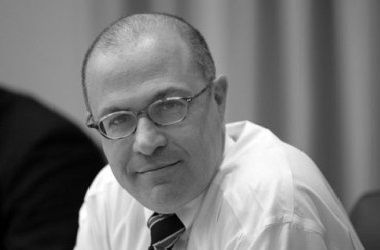CFTC Commissioner Chris Giancarlo criticised his agency’s efforts at implementing Dodd-Frank rules into commodity derivative markets in a speech that called for the roll-back of several proposals and finalised rules.
The recently installed Republican Commissioner believes the rules inadvertently place burdensome requirements on end-users of derivative contracts. The rules, he says, make it difficult for firms to employ hedging strategies that use commodity derivative instruments.
“The stated purpose of the Dodd-Frank Act was to reform ‘Wall Street’…instead, we are burdening ‘Main Street’ by adding new compliance costs onto our farmers, grain elevators, and small futures commission merchants,” he said in prepared remarks before the Commodity Markets Council on Monday.
“End-users were not the source of the financial crisis…It is our job at the CFTC to make sure that our rules do not treat them like they were.”
Giancarlo called for changes to five rulemakings, including current proposals to implement position limits on speculative trading in commodity derivative markets. The controversial rule has stalled following a loss in court for the agency connected to its first rulemaking attempt in 2012.
The criticisms dovetail with Giancarlo’s market-based background, but also fall in line with pivoting attention from Chairman Timothy Massad towards a more corrective approach to rulemakings put in place by the previous administration.
“Some fine tuning is necessary … particularly when it comes to making sure markets continue to work for commercial companies that depend on them to hedge routine commercial risk,” said Massad during a speech in November.
Giancarlo’s changes would be welcomed by a market that has been pining for Dodd-Frank carve-outs since before the law was passed. The industry believes it has been unfairly lumped in to regulatory definitions for ‘financial entities’ that include tighter oversight and additional requirements.
“Imposing banking law concepts onto market participants that are onto market participants that are not banks and did not contribute to the financial crisis is not only confusing, but adds more risk to the system,” said Giancarlo in the speech.
The attempt at affecting changes is accentuated by the re-launch of the agencies’ Energy and Environmental Markets Advisory Committee – a forum of energy market participants whose charter goal is to guide the agency. The committee is required to meet twice a year under Dodd-Frank rules, but had not met since 2009.
Giancarlo will sponsor the committee and on Monday announced the names of 26 members. No date has been scheduled yet for a first meeting.
